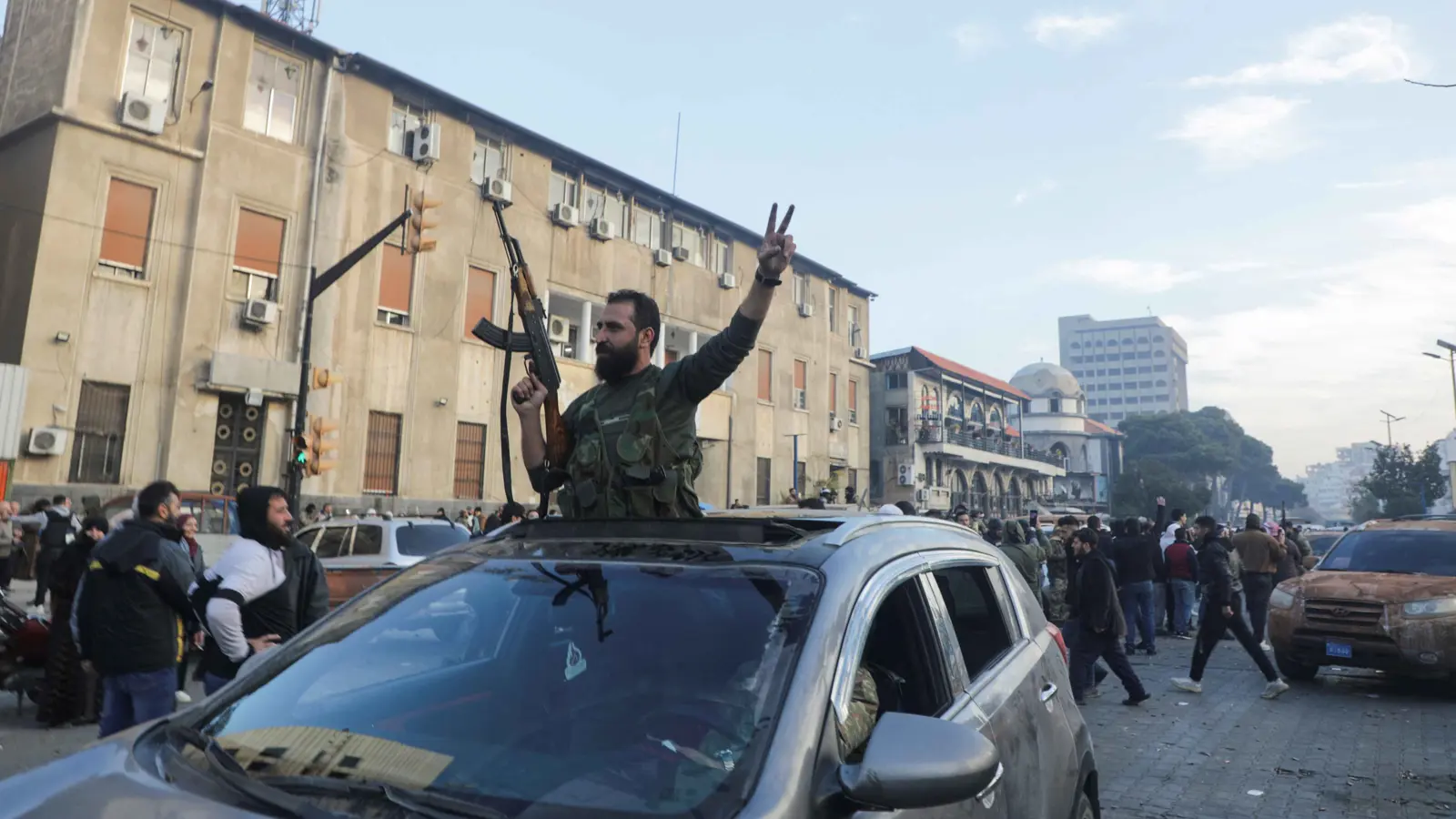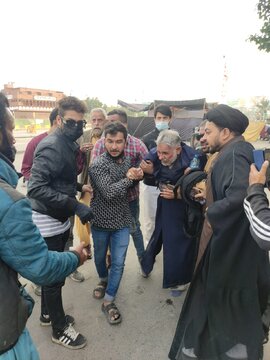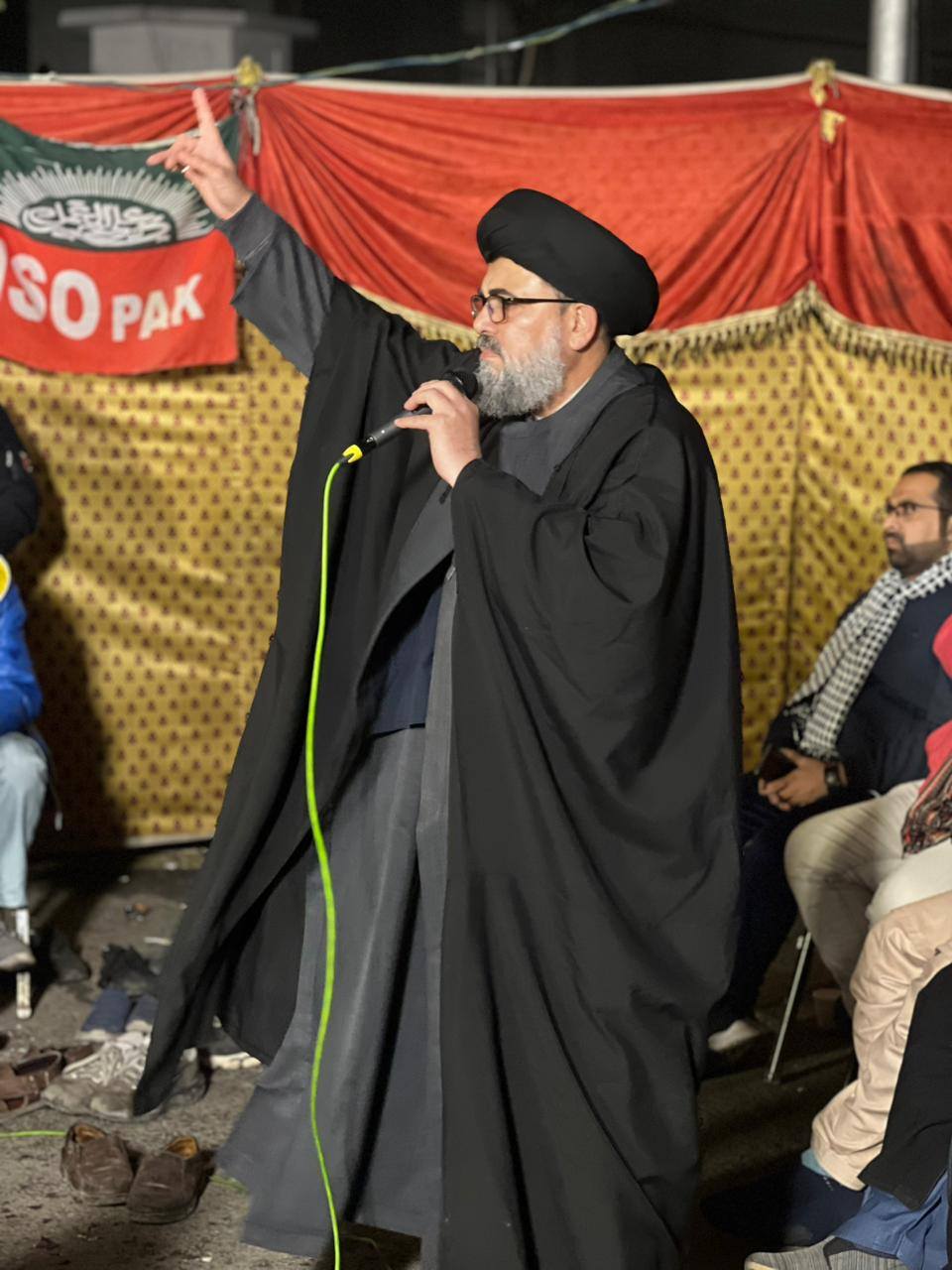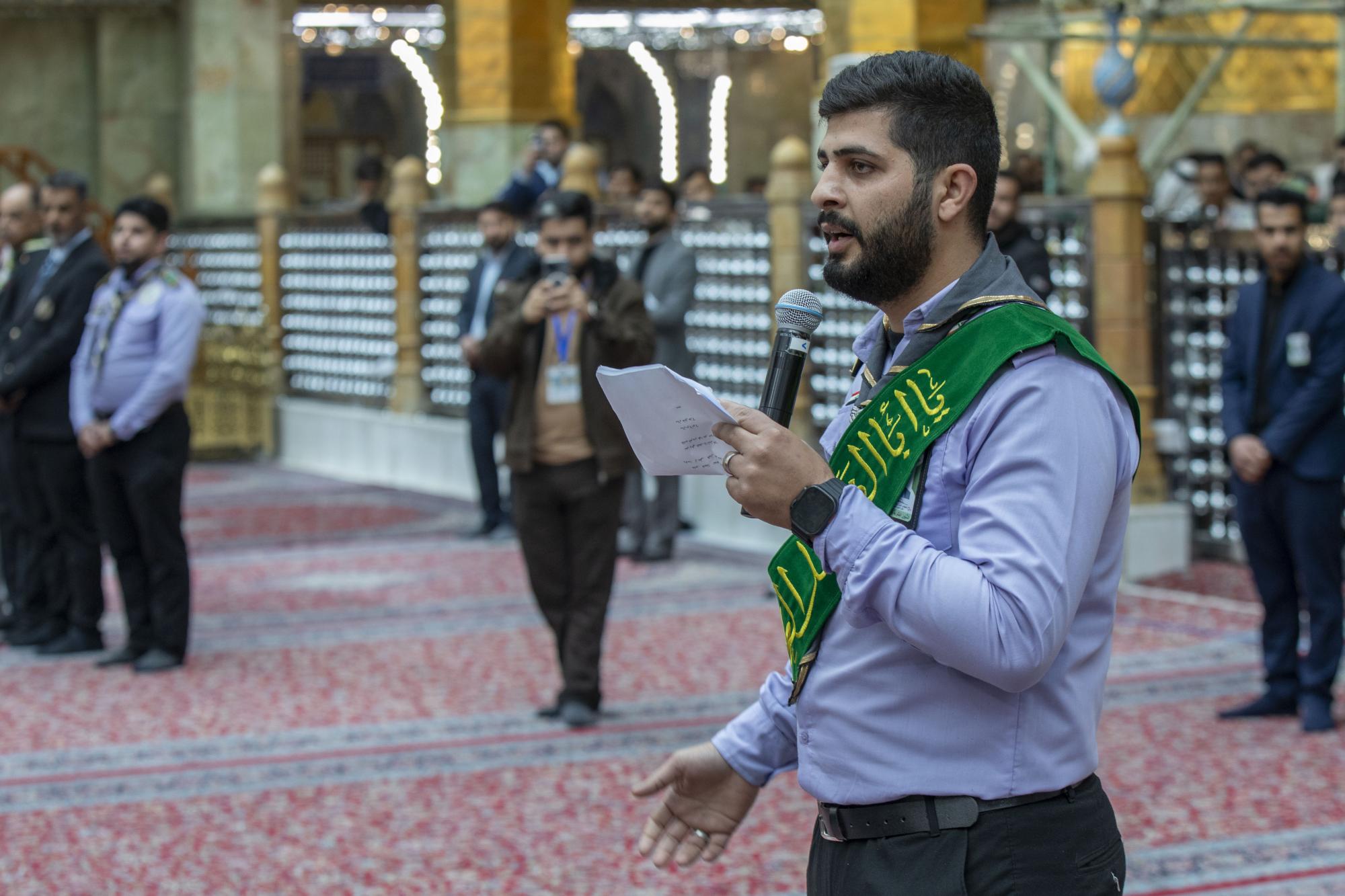Eyewitness told the CNN that the armed groups entered the capital Damascus without facing any resistance from the army. As the armed groups entered the capital city, the Syrian chief of general staff announced to the commanders and officers the collapse of Bashar al-Assad government.
Media reports indicate that many army soldiers abandoned their positions and left the command headquarters without any protection. Among the most important places that were evacuated from personnel were the military intelligence headquarters and the general headquarters building in Umayyad Square. Footages circulating on social media show Syrian army soldiers taking off their military uniforms and putting on civilian clothes as the opposition advanced towards the capital.
Al-Assad's Prime Minister Mohammed al-Jalali announced that the cabinet of ministers will meet on Sunday to take the necessary steps to transfer the rule. He said he is "ready to work with whoever the Syrian people choose."
Statement of armed opposition
The armed opposition’s Political Affairs Office announced in a statement that it took control of Damascus, adding: “Liberated Syria is eager to strengthen its relations with all brotherly and friendly countries based on mutual respect and common interests. We will seek to play a constructive role in the region and the world to achieve security and stability.”
The statement further held: “The liberation of Syria marks the beginning of a new phase of economic reforms. We will set priorities for developing vital sectors, creating job opportunities and encouraging national and international investments. Addressing Syrian refugees around the world, these groups said: “Syria is waiting for you so that everyone can coexist in peace and justice in new Syria.”
The armed opposition also after seizing the national television in a short statement said that they hold control of the capital city. They also called on armed people and all Syrians to protect public utilities. They added that the prisoners were sett free.
Al Jazeera reported that Syrian opposition's police forces were entering Damascus to secure areas of the capital. This is while some news outlets report chaos in different parts of Syria and looting of the presidential palace.
Given the political and security instability in Syria, the armed opposition called from mosques for people to stay in their homes and not go out on the streets. Despite this, thousands of people gathered in cars and on foot to celebrate towards Umayyad Square in the capital, chanting slogans of freedom.
Statues of Hafez al-Assad, Bashar al-Assad's father, were also toppled, and the opposition also tore down posters of the two everywhere. In the old neighborhoods of Damascus, a number of young people chanted: "The Syrian people are one."
Assad leaves to unknown place
With the fall of Damascus, conflicting reports have emerged about the fate of Bashar al-Assad. There is still no information about his whereabouts, and reports suggest that he has left Damascus for an unknown destination, with some sources saying he may have gone to Russia.
After the Syrian army withdrew from the city of Homs yesterday, the Syrian opposition claimed that a Russian plane took off from Damascus airport on Sunday morning and flew towards the Hmeimim airbase on the Syrian coast.
Armed groups are also investigating and interrogating intelligence officers and forces to learn al-Assad’s exact location, but it seems that he left the country without the knowledge of his government officials.
The Syrian Prime Minister, who is currently in charge of the country, told Al Arabiya: “I do not know where al-Assad is or when he left Syria. My last contact with al-Assad was on Saturday evening.” The Syrian Defense Minister is also said to have left the country with al-Assad to escape possible punishment of the opposition.
First speech of al-Jolani
Abu Mohammad al-Jolani, the head of Tahrir Al-Sham as the main force having toppled al-Assad and now the top man of Syria, in a short speech outlined the security and political situation in Syria. Al-Jolani, whose real name is Ahmad al-Sharaa, issued instructions to all militants in Damascus, telling them not to enter the public institutions because "they belong to the great nation of Syria."
"These institutions will be under the supervision of the former prime minister until the official power handover. We have no disagreements with the previous government, and this government will continue its mission and duties. From today, a new process begins in Syria based on peaceful coexistence and the rule of law. Together, we will complete the picture of victory for the greatest revolution in modern history," al-Jolani said in his statement. He banned firing into the air by the fighters in order to prevent people from panicking and for peace to prevail in Syria.
Hadi Al-Bara, the head of Syrian opposition, told Aljazeera that the opposition will meet with the Arab countries, the Europeans, and the UN for agreement on next stage.
Syria was a fortress against Israel
With the collapse Damascus to the opposition, the observers make various predictions about the future of the Arab country.
Sayyed Hadi Afghahi, a West Asia affairs expert, in an interview with Alwaght pointed to the key role Syria had in the past decades in the Axis of Resistance—a regional bloc led by Iran and opposed to the Israeli and American colonial and expansionist policies—, saying that "Syria has been a supporter of the Palestinian cause for years and a refuge for many Palestinian jihadist groups. It never bowed to pressure from the US and the Zionist regime to sign an agreement similar to the Camp David Accords and the Jordan Valley. It has been a supporter of the Axis of Resistance, especially Hezbollah in Lebanon, in its confrontation with the Zionist regime."
Commenting on the course of Syrian political and security developments after eruption of the civil war in 2011 and that how the armed groups finally managed to sieze the power in Damascus, Mr Afghahi said that after the victory in the civil war thanks to support of its allies Iran, Hezbollah, and Russia, Russia pursued political process under Astana Format and Sochi Format. The representatives of Russia, Iran, and Turkey signed these documents and al-Assad government accepted some obligations to make constructional changes and open the political space for participation of moderate opposition.
Mr Afghahi mentioned Turkish betrayal of its promises in practice, saying that Turkey promised that after signing the Astana and Sochi agreements with terrorist and armed groups to lay down their arms and enter the safe zone, atmosphere would be prepared for these factions and opposition groups if they are willing to participate in the political process of Syria. But unfortunately, Turkey actually has territorial ambitions in Syria. Add to this the Syrian government and allies' negligences that paved the way for Israel and the US, and some Persian Gulf Arab monarchies to enter Aleppo crisis.
No need for serious Iranian presence in Syria
Asked why Iran did not play a serious role in recent Syrian crisis like a decade ago, Mr Afghahi said that given the trend of regional developments and the position of Turkey and other countries towards the Syrian crisis, there was no need for Iran to be actively present there to solve the problems of Syria and create peace and national reconciliation. Therefore, Iran's presence was limited to military advice and diplomatic solutions. Recently, serious efforts were made by the Islamic Republic. The recent visits of Foreign Minister Abbas Araqchi and Ali Larijani, the advisor to Iran's Supreme Leader Ayatollah Sayyed Ali Khamenei, to Syria and the messages of the Leader to al-Assad were for this purpose.
Syria entered a dark tunnel
Asked how he sees the political future of Syria, Mr Afghahi said that Syria future has actually entered a dark tunnel because 37 groups took part in the toppling of al-Assad and each will pursue their specific plans. Many of these group are not Syrian and each want a share. He added that some are against the Israeli regime, some are in favor of it, some are seeking their independence, some are seeking to partition Syria, some are seeking a confederation. These are the ongoing developments inside Syria. We have to wait and see where it ends, and for now, the commander of the Tahrir Al-Sham forces has announced that he will allow a transitional government to form in the future, and the current Syrian prime minister must do this.
Resistance camp continues mission without Syria
Mr Afghahi commented on the conditions of the Axis of Resistance without its Syrian branch, maintaining that there are some vacuum in communication with the Axis of Resistance. But the Resistance factions are still active and the Islamic Republic of Iran still supports them, because the main aim and mission of the Axis of Resistance and Iran is none of these countries. The main aim is to confront the Israeli regime and expel the US forces from the region which are the source of the insecurity and turmoil in the region./129





